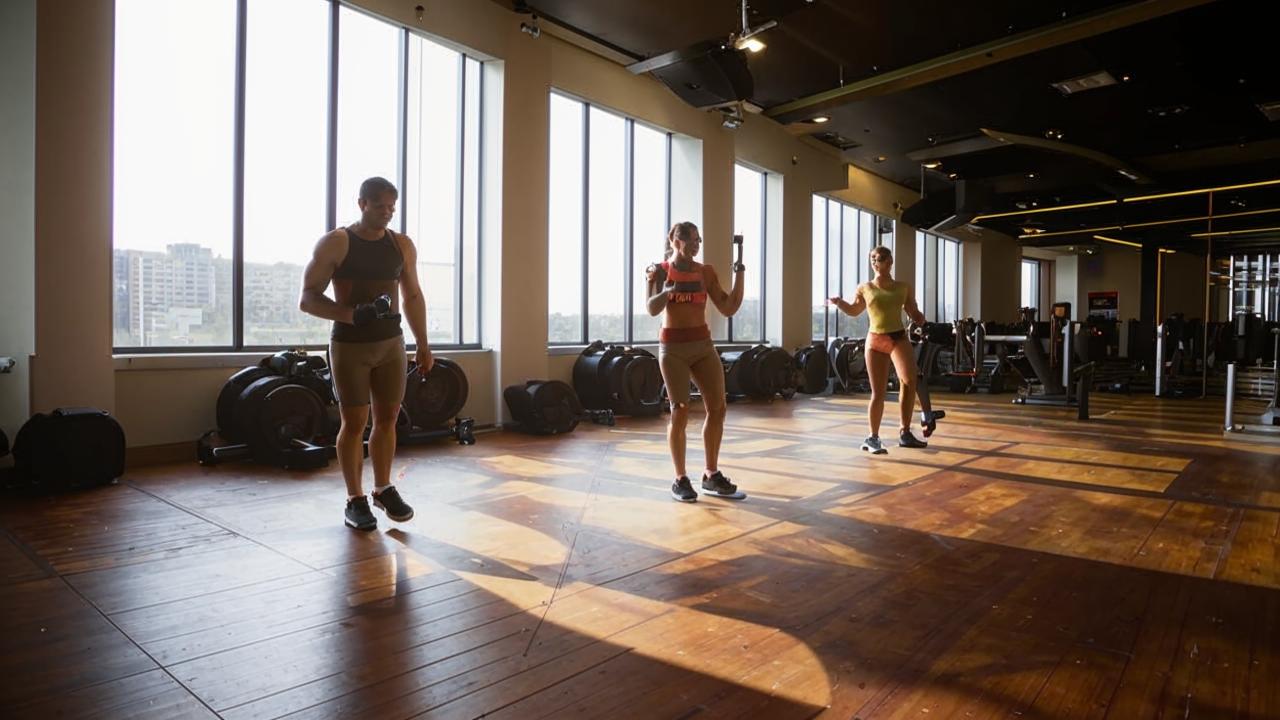Are you the kind of person who is ready to go for a morning jog before breakfast? Or go to the gym before dinner on an empty stomach? Find out with an expert whether it’s okay to work out on an empty stomach.
What we’ll tell you
Benefits of training on an empty stomach

Candidate of Medical Sciences, gastroenterologist at the Euroonco clinic in St. Petersburg.
“A healthy person training on an empty stomach will definitely not harm. Just after a dense meal should avoid strong physical stress on the body”.
Physical activity is an essential component of a healthy lifestyle. Regular exercise helps improve cardiovascular health, build muscle strength, improve metabolism, mood and reduce the risk of chronic disease. However, the timing and food intake before exercise can affect its effectiveness and body quality.
Exercising on an empty stomach is more suitable for people who exercise rather than professional sports, that is, with a low physical load.
Among other things, exercising on an empty stomach helps to reduce blood sugar and cholesterol levels.
Exercising on an empty stomach has gained popularity in recent years. A number of studies have shown that exercising on an empty stomach helps burn fat. The logic is that this is when the body uses fat and sugar for energy, so when there is nothing in the stomach, the accumulated fat stores in the body are burned. However, the scientific evidence supporting this judgment is still inconclusive.

Scientific papers examining the pros and cons of exercising on an empty stomach are limited. Some people who exercise on an empty stomach have a higher rate of fat oxidation than people who ate a carbohydrate-rich meal 0.5 to 3 hours before exercise.
It has also been shown that one session of aerobic exercise on an empty stomach can increase the utilization of stored body fat as a fuel source. In a 2022 study, fasting before an evening workout had a similar effect, but scientists found that this type of activity impaired performance in healthy men and women.
One problem is that the benefits of fasting before a workout are short-lived. While people do burn a certain percentage of stored fat, over time the total amount of fat burned usually decreases. This is because the intensity required to sustain a high-impact workout exceeds the body’s capacity when idling.
For example, the same 2022 study also found that hungry participants had a harder time maintaining a workout. Their motivation decreased and their performance worsened. Meanwhile, there are scientific papers that show that training on an empty stomach can increase endurance as the body learns to use oxygen more efficiently and burn fat as an energy source.

In fact, the level of fat burning during a workout depends on many factors, including the type of workout, the intensity of the exercise, and your overall diet.
Disadvantages of working out on an empty stomach
The question of whether it’s okay to workout on an empty stomach is a controversial one among athletes, coaches, and nutritionists. Some people follow this practice in the hope of speeding up the weight loss process, while others fear negative consequences. Let’s talk about them.
The cons of exercising on an empty stomach are decreased performance and at times loss of muscle mass. Physical activity without food or fuel leads to lower energy levels, making it harder to put out 100%. This, in turn, can lead to shorter or less intense workouts.
In some rare cases, exercising on an empty stomach leads to muscle breakdown as the body seeks alternative sources of energy.
Exercising on an empty stomach can be dangerous, especially if done improperly or if certain medical conditions are present. For example, a condition such as hypoglycemia (low blood sugar) can cause dizziness, weakness and fainting during exercise, potentially risking injury.

Lowering sugar levels too much during prolonged exercise is a disadvantage of exercising on an empty stomach, meaning you have to strike a certain balance. I would not recommend working out on an empty stomach for people with a lean build, or those with blood sugar levels below 4 mmol/L.
In addition, exercising on an empty stomach can lead to severe dehydration. This, in turn, can lead to fainting and even loss of consciousness.
Training on an empty stomach can have both pros and cons. It is important to approach this issue individually and take into account the peculiarities of your body.
Alternatives to training on an empty stomach
As we have already realized, training on an empty stomach is a controversial issue. So what are the alternatives?
Caffeine-fueled workouts on an empty stomach
One way to maintain energy during a workout without eating is to drink a cup of coffee before you start exercising. Caffeine helps improve endurance, concentration, and speed up the breakdown of fat stores in the body. However, it is important to remember that every body has a different reaction to the invigorating substance, so you should test this method on yourself and monitor your well-being.

Caffeine can be obtained from coffee, green tea or special supplements.
It should be remembered that its excessive consumption can lead to increased heart rate, anxiety and sleep problems.
Eat a balanced meal 1-2 hours before your workout
A balanced pre-workout meal will provide your body with the energy and nutrients it needs without overloading your digestive system. A combination of complex carbohydrates (oatmeal, brown rice, couscous), digestible proteins (chicken breast, fish, cottage cheese) and healthy fats (avocado, nuts, seeds) is ideal.
You should avoid heavy, fatty and high-calorie foods before working out to avoid discomfort.
Carbohydrate drink or gel during a workout
When working out for long periods of time or at high intensity, the body needs an additional source of energy. A carbohydrate drink or gel can help maintain blood glucose levels and prevent depletion of energy stores.
When is the best time to exercise?
As for the time of day, everything is individual.
Every person who exercises regularly has their own preferences or schedule, which is best coordinated with a professional trainer.





